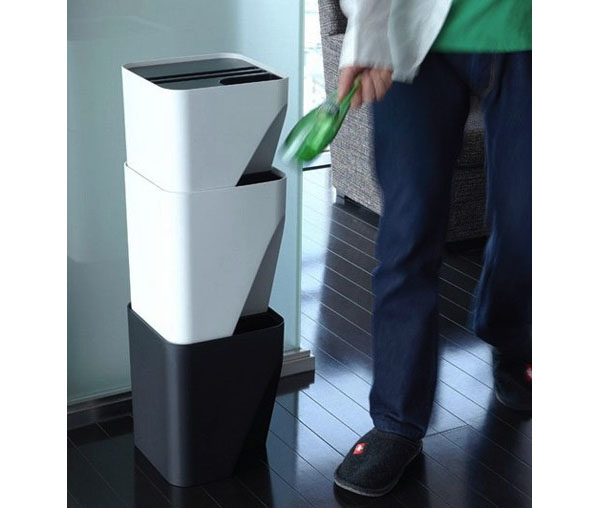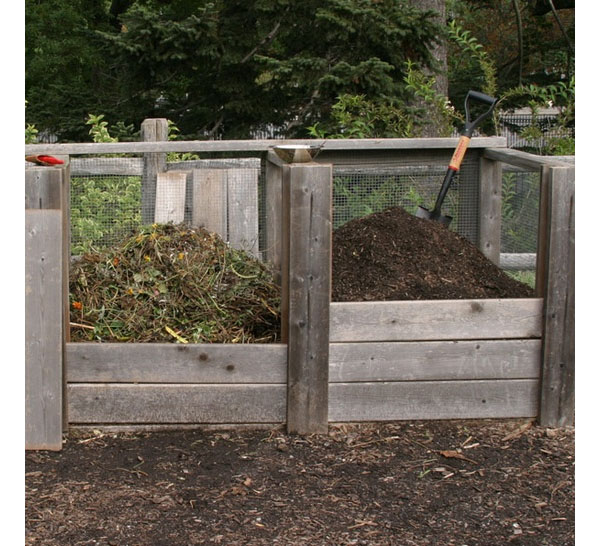Cleaning and maintaining a home can create a huge amount of rubbish and manufacturers, shops and councils are all realising that waste is just that, a waste. Even so, we still seem to be filling bins at an unprecedented rate, throwing out nearly a tonne of rubbish from our homes each year.
While we all still produce waste, many environmental designers now believe that the future will truly be waste free. Instead of producing waste, we will pass on more and more of our unwanted resources to discard companies who will clean them and sell them back to manufacturers as raw material.
Plastics will go back to the plastic bag manufacturer, metals to the tin-maker, glass to the bottle shop and much of the rest will be composted for our garden centres or burnt to produce heat and power. Discard companies will be hi-tech rag and bone men and the old saying, ‘where there’s muck there’s brass’, will never be truer. Even now you can find a home for a huge number of things that you no longer need.
You can sell them on ebay (www.ebay.co.uk) , give them away on freecycle (www.freecycle.org) or, even better, donate them to a local charity shop. There’s never been a better time to avoid landfills and rubbish dumps.
In order to make this happen, we householders will have to learn to reduce waste to a minimum, reuse as much as possible and then choose things that can easily be recycled at the end of their lives.
[box]Frightening statistic: In the UK, we each produce about 500kg of waste per year – more than seven times our body weight, which amounts to 40,000 tonnes in our lifetime. A third of this is packaging.[/box]Recycling
For household waste to be recycled it’s important to buy products that have packaging which is easy to re-assemble. It is far easier to recycle a simple cardboard box, for example, than a plastic coated metal tin. Don’t buy products that are packaged in complex containers, such as aerosols, air fresheners or oven cleaners, because more money goes into the can than into the product inside (it is even more of a waste when home-made products can do these jobs just as well). You should also avoid buying dangerous and toxic products that will pollute the planet when discarded. If you can’t avoid them then make sure that you dispose of them responsibly.
Set up a recycling cupboard at home. Old cards, paper and magazines can be used to soak up spillages, given to the kid’s for painting and scrap-book making, or composted with garden and kitchen waste. Clean glass and plastic bottles and containers are good for mixing home-made cleaning products or for storing dried garden herbs. Cut plastic bottles in half and use them to protect growing plants in the garden. Tins and metal containers can be recycled into paint pots but make sure you file down any sharp burrs. In fact, most sensibly designed containers can be reused for years before they wear down and have to be thrown out.
Never throw rechargeable batteries or mobile phones away. These can often be recycled or given a new lease of life in developing countries.
Composting
Twenty per cent of household rubbish is made up of organic kitchen waste that can be composted and used as a free and effective fertiliser in your garden.
You can make a compost area by putting a wire fence around a small corner of your garden, make a compost bin using old wooden pallets, or by buying a fixed or rotating compost bin from your local garden centre. Fill it with kitchen waste and garden cuttings and, in a few months, you’ll have a rich compost with which to feed your garden.
To get good compost, layer dry material such as autumn leaves with kitchen scraps, add grass cuttings to improve nitrogen content and insulate the pile with pieces of old carpet. Water occasionally to keep the area moist and use “recycled beer” to speed up the composting process. Avoid adding animal or dairy products as these decompose very slowly, encourage the growth of blue fly and attract vermin into your garden. You can safely compost meat, fish and dairy if you use the Bokashi composting method. Once the waste has composted, spread it onto your garden as a mulch and let worms do the job of mixing the nutrients into the soil.
Making compost | Compost checklist
Wormery Composting
Compost bins can also be converted into wormeries. These produce a richer liquid garden fertiliser that can kick start new plant growth without the need for chemicals. To make a worm bin, take a standard plastic compost bin and drill holes, about 100 mm From the bottom. Fill the bottom with gravel and water until it reaches the holes. Add kitchen waste, some manure and egg shells together with a handful of tiger worms (obtainable from an angling shop), then keep adding waste. The worms will multiply quickly and turn the compost into a very rich waste that you can mix with soil to produce excellent potting compost.
Disposing of toxic household waste
Quite a lot of our household waste is toxic which therefore needs to be disposed of carefully. Many local councils have facilities for handling toxic household waste and you should contact your local authority to find out more. Save
up old oils, paints and pesticides and send them to your council’s hazardous waste collection service.
You can cut up unwanted leather and other textiles and use them as cloths or give them to charities. Some leather and cotton will even break down effectively in your compost bin. Take old medicines to your pharmacist for safe disposal.
Some products cannot be recycled so consider this when shopping. Disposable batteries, for example, add toxic waste to land fills, so always try to buy rechargeable batteries.

